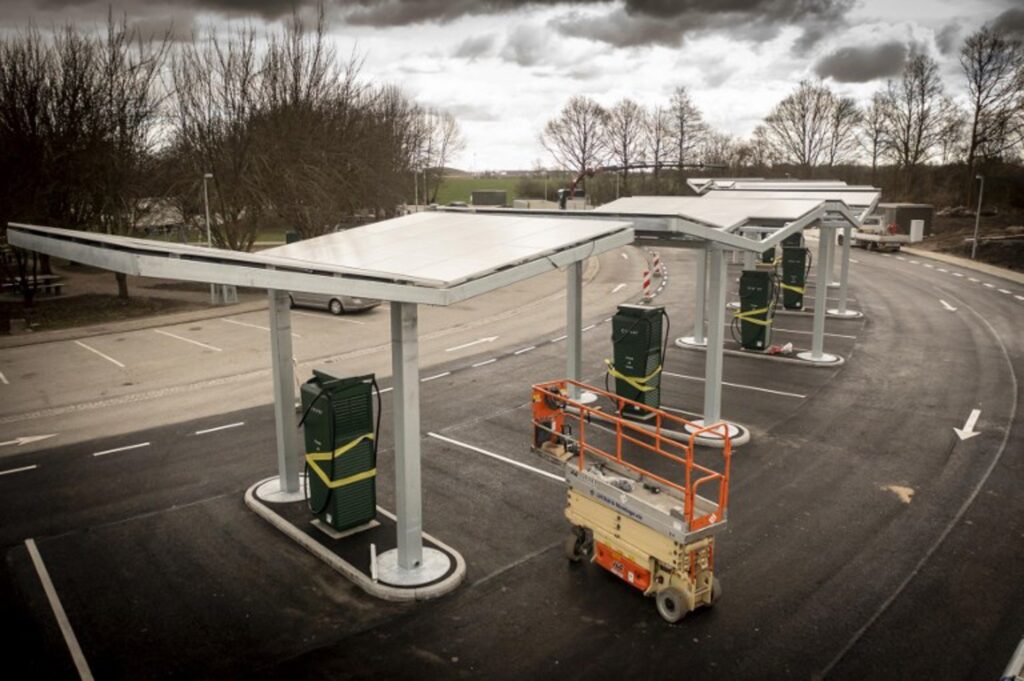Electric charging points for cars should be available, by 2026, at least every 60km on the network of Europe’s biggest roads – those in the “core network” of the trans-European transport network.
This overall target is part of a provisional agreement reached on Tuesday between negotiators from the European Parliament and the EU Council (member States). The European Commission is also working on a proposal for a new EU framework directive on electric vehicles.
The agreement follows a Commission proposal published in the summer of 2021, in the wake of the new “climate law” that raised European ambitions for reducing greenhouse gas emissions (-55% by 2030, compared to 1990).
Ban on new non-CO2-neutral cars by 2030
It aims to give a regulatory boost to the deployment of recharging infrastructures for electric vehicles and those allowing hydrogen refuelling.
The new rules, which still need a final green light from the Parliament and the States, concern road transport (passenger cars and heavy goods vehicles), ships at berth and aircraft on the ground.
The electrification of the European car fleet should be accelerated by a ban on new non-CO2-neutral cars and vans from 2030, a text that was definitively validated on Tuesday.
While the 27 Member States have resolutely chosen the path of “full electric” for passenger cars, this ambition requires an efficient and coherent public network of charging stations. The number of electric cars has increased 17-fold since 2016, but the number of charging stations has only increased by 6, said the rapporteur on this dossier, German MEP Ismail Ertug.
Numerical targets
The existing directive on the deployment of infrastructure for alternative fuels does not set binding numerical targets per country. This will change with the new text, which will introduce basic standards.
These include: a minimum total power of the publicly accessible recharging park, depending on the number of battery electric vehicles registered in the Member State, a minimum requirement for coverage of the main roads, whether for electric recharging of cars or larger vehicles (trucks and buses) or for hydrogen refuelling.
Thus, by 2026, there will need to be a charging point at least every 60km on the TEN-T core network, for light vehicles, with an upward revision of the charging power by 2028.
Relaxations underway for remote areas
The agreement includes a requirement for a charging station every 120km for trucks and buses, but these stations will have to be installed on half of the EU’s main roads by 2028 and offer between 1,400kW and 2,800kW depending on the road, the European Parliament said.
Under pressure from the Council, relaxations are being introduced for roads with less traffic and more remote areas.
The European Parliament is also proposing to introduce a number of other measures.

